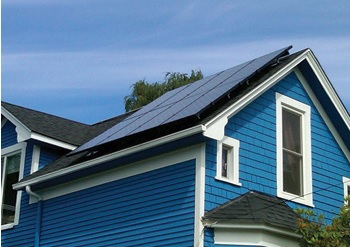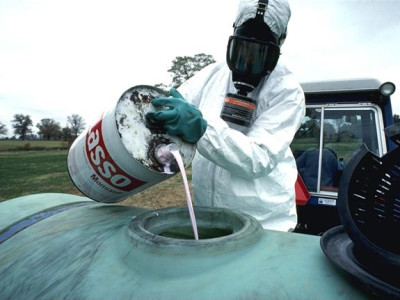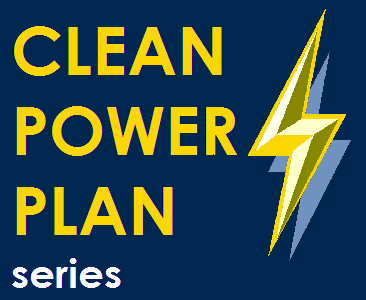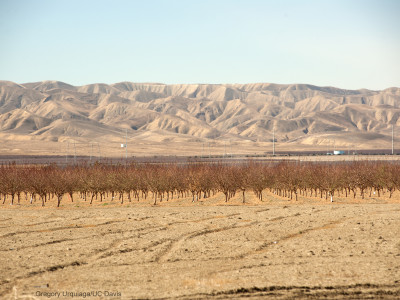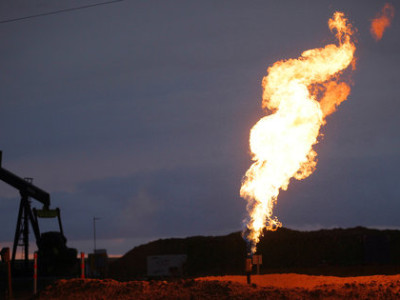Regulation
Will the TPP Undermine Climate Policy?
The short answer: probably not much, maybe not at all
Representatives of U.S. environmental negotiations have shown up in Paris to campaign against the new TPP trade agreement. (here) They’ve also been actively engaged in discussions with Democratic law-makers, in an effort to block approval. A key objection is that the TPP will undermine climate policy. Jim Salzman had a great post last week on …
Continue reading “Will the TPP Undermine Climate Policy?”
CONTINUE READINGYou Have the Right to Generate Your Own Electricity
Preserving an implicit right in the face of electric utility resistance
Do people have the right to generate electricity for their own use and still remain connected to the grid? Of course they do. You see it every day. Without prior registration or a background check, anyone can go into a hardware store and buy a diesel generator. Homeowners and businesses can install rooftop solar photovoltaics …
Continue reading “You Have the Right to Generate Your Own Electricity”
CONTINUE READINGThe Ninth Circuit Takes EPA to Task (Twice)
EPA’s pesticide registration efforts trigger forceful response
Judge McKeown of the 9th Circuit Court of Appeals recently wrote of the EPA, “Although filibustering may be a venerable tradition in the United States Senate, it is frowned upon in administrative agencies tasked with protecting human health.” Yikes. What did the EPA do to elicit such a reaction from a federal judge? The short …
Continue reading “The Ninth Circuit Takes EPA to Task (Twice)”
CONTINUE READINGClean Power Plan Litigation Kick-Off
Flood of lawsuits follows publication of EPA rules to regulate power-plant GHGs
*Updated: Nov. 17, 2015* On Friday, October 23, 2015, the Federal Register formally published EPA’s rules to control greenhouse-gas emissions from fossil-fuel-fired power plants under the Clean Air Act. I described the basics of the rules after EPA released the unofficial text in August. The final text of the rule to regulate new and modified …
Continue reading “Clean Power Plan Litigation Kick-Off”
CONTINUE READINGAddressing Externalities: A Modest Proposal
How to make health and safety a personal priority for industry officials.
According to economists, firms have little reason to take into account the cost of externalities — that is to say, the harms their activities may impose on others. The traditional solutions are damage remedies or taxes to transfer the financial cost to the industry, or regulation to force industries to limit their harmful activities. Why not …
Continue reading “Addressing Externalities: A Modest Proposal”
CONTINUE READINGDueling California Drought Relief Bills Debated on Capitol Hill
Stark Differences Emerge Between Competing House and Senate Bills
What can and should the federal government do to assist the State of California in weathering the worst drought in recorded state history? While the U.S. House of Representatives is embroiled in a chaotic political debate over selection of a new House Speaker, the more deliberate consideration of new legislation continues apace in the Senate. …
Continue reading “Dueling California Drought Relief Bills Debated on Capitol Hill”
CONTINUE READINGGaping Hole in EPA’s Methane Rules
Why don’t EPA’s proposed rules to reduce methane emissions apply to existing oil and gas facilities?
In August, EPA released proposed rules to reduce fugitive methane and VOC emissions from oil and gas operations. While this is a significant action in the fight against climate change, and much needed in light of the shale-driven national drilling renaissance, there is a gaping hole in the methane rules that has environmentalists worried — …
Continue reading “Gaping Hole in EPA’s Methane Rules”
CONTINUE READINGDuPont Found Liable In First of 3,500 Lawsuits
Chemical Used in Teflon Linked to Numerous Health Problems, but its Use is Still Legal Under TSCA
Yesterday, a jury in the Southern District of Ohio found DuPont liable for a woman’s kidney cancer in the first of 3,500 suits the company faces. The cases all stem from DuPont’s use and disposal of perflourooctanoic acid (PFOA) or C8. The chemical is used to make Teflon, among other things, and the most recent …
Continue reading “DuPont Found Liable In First of 3,500 Lawsuits”
CONTINUE READINGExploring Potential Challenges to EPA’s New Source Performance Standard: PART III
CCS for coal power plants, but not natural-gas power plants?
This post is the third in a mini-series (see first and second posts) exploring likely legal challenges to the New Source Performance Standard (NSPS) for power-plant greenhouse gas emissions under Clean Air Act § 111(b), and how those challenges might affect the Clean Power Plan. In my first post on EPA’s New Source Performance Standard …
Continue reading “Exploring Potential Challenges to EPA’s New Source Performance Standard: PART III”
CONTINUE READINGIs CCS the “best” system of emission reduction for coal-fired power plants?
Exploring Potential Challenges to EPA’s New Source Performance Standard: PART II
This post is the second in a mini-series (see first post) exploring likely legal challenges to the New Source Performance Standard (NSPS) for power-plant greenhouse gas emissions under Clean Air Act § 111(b), and how those challenges might affect the Clean Power Plan. In my first post on EPA’s New Source Performance Standard (NSPS) for …
Continue reading “Is CCS the “best” system of emission reduction for coal-fired power plants?”
CONTINUE READING




